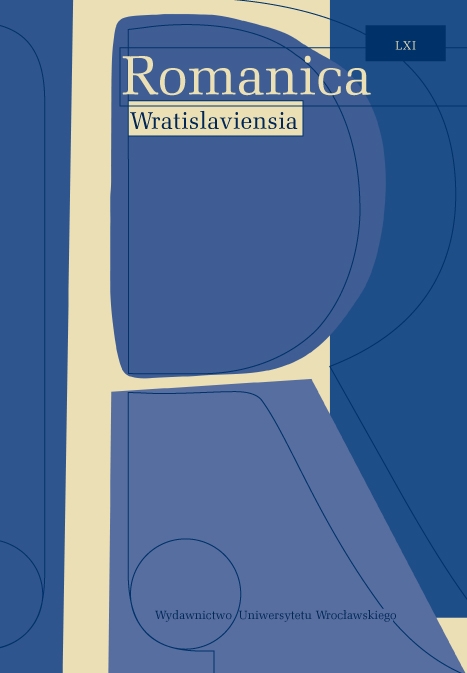

Articles

BETWEEN MORALITY, GALLANTRY, AND BURLESQUE: THE HISTORICAL SHORT STORY IN THE SEVENTIESOF THE SEVENTEENTH CENTURY
Using as examples Dom Carlos by Saint-Réal 1672, Les Annales galantes by Mme de Villedieu 1670 and Le Prince de Condé by Edme Boursault 1675, in the present article I discuss three aspects of 17th-century historical short stories: the role of the moral lesson they teach, gallantry and burlesque. I demonstrate that the authors of historical short stories attempt to reinterpret historical events and mix historical facts with fiction, while making references to the times they lived in. Historical short stories, by no means, describe ancient history; rather, they present contemporary events under historical guise. Their moral message is universal as these stories portray human nature and social vices. Ironic humour and burlesque, which underscore importance of this message, are popular with readers and make the work carry the intended message in a clear way. The variety of forms of these short stories opens up the path for new subgenres of the novel, namely for the psychological novel and for the novel of manners.